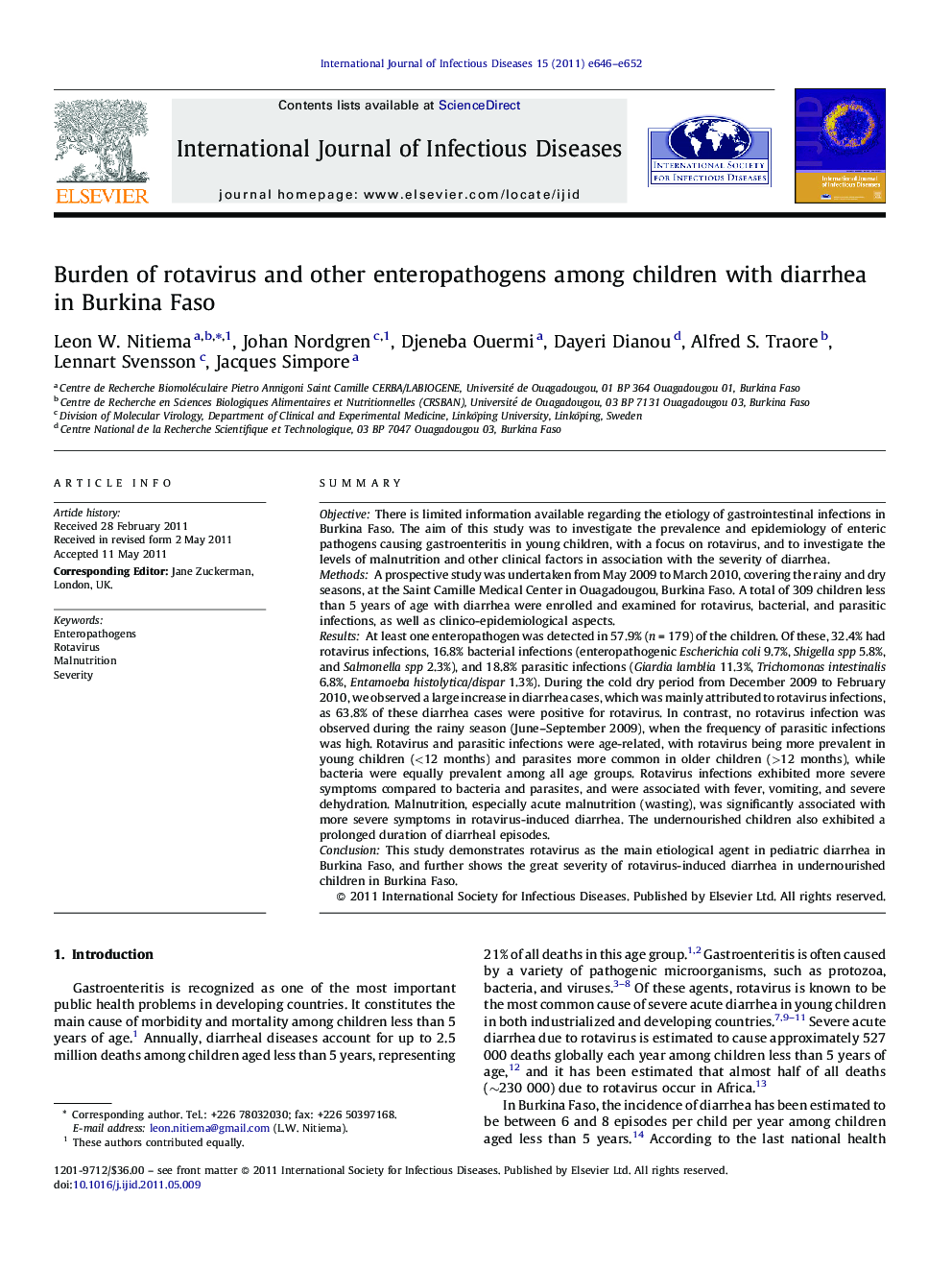| Article ID | Journal | Published Year | Pages | File Type |
|---|---|---|---|---|
| 3363175 | International Journal of Infectious Diseases | 2011 | 7 Pages |
SummaryObjectiveThere is limited information available regarding the etiology of gastrointestinal infections in Burkina Faso. The aim of this study was to investigate the prevalence and epidemiology of enteric pathogens causing gastroenteritis in young children, with a focus on rotavirus, and to investigate the levels of malnutrition and other clinical factors in association with the severity of diarrhea.MethodsA prospective study was undertaken from May 2009 to March 2010, covering the rainy and dry seasons, at the Saint Camille Medical Center in Ouagadougou, Burkina Faso. A total of 309 children less than 5 years of age with diarrhea were enrolled and examined for rotavirus, bacterial, and parasitic infections, as well as clinico-epidemiological aspects.ResultsAt least one enteropathogen was detected in 57.9% (n = 179) of the children. Of these, 32.4% had rotavirus infections, 16.8% bacterial infections (enteropathogenic Escherichia coli 9.7%, Shigella spp 5.8%, and Salmonella spp 2.3%), and 18.8% parasitic infections (Giardia lamblia 11.3%, Trichomonas intestinalis 6.8%, Entamoeba histolytica/dispar 1.3%). During the cold dry period from December 2009 to February 2010, we observed a large increase in diarrhea cases, which was mainly attributed to rotavirus infections, as 63.8% of these diarrhea cases were positive for rotavirus. In contrast, no rotavirus infection was observed during the rainy season (June–September 2009), when the frequency of parasitic infections was high. Rotavirus and parasitic infections were age-related, with rotavirus being more prevalent in young children (<12 months) and parasites more common in older children (>12 months), while bacteria were equally prevalent among all age groups. Rotavirus infections exhibited more severe symptoms compared to bacteria and parasites, and were associated with fever, vomiting, and severe dehydration. Malnutrition, especially acute malnutrition (wasting), was significantly associated with more severe symptoms in rotavirus-induced diarrhea. The undernourished children also exhibited a prolonged duration of diarrheal episodes.ConclusionThis study demonstrates rotavirus as the main etiological agent in pediatric diarrhea in Burkina Faso, and further shows the great severity of rotavirus-induced diarrhea in undernourished children in Burkina Faso.
